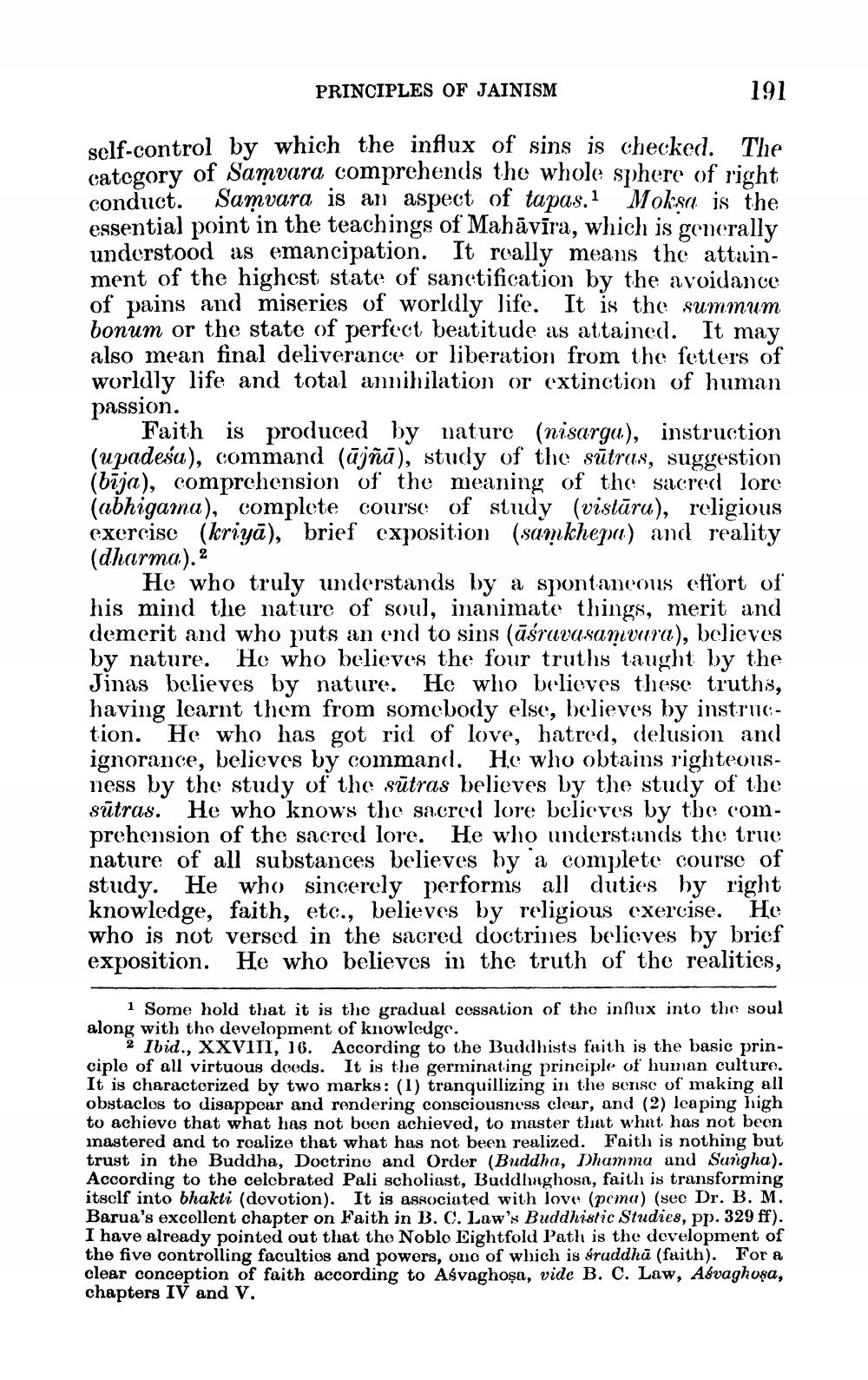________________
PRINCIPLES OF JAINISM
191
self-control by which the influx of sins is checked. The category of Samvara comprehends the whole sphere of right conduct. Samvara is an aspect of tapas.1 Moksa is the essential point in the teachings of Mahāvīra, which is generally understood as emancipation. It really means the attainment of the highest state of sanctification by the avoidance of pains and miseries of worldly life. It is the summum bonum or the state of perfect beatitude as attained. It may also mean final deliverance or liberation from the fetters of worldly life and total annihilation or extinction of human passion.
Faith is produced by nature (nisarga), instruction (upadesa), command (ājñā), study of the sutras, suggestion (bija), comprehension of the meaning of the sacred lore (abhigama), complete course of study (vistāru), religious exercise (kriya), brief exposition (samkhepa) and reality (dharma). 2
He who truly understands by a spontaneous effort of his mind the nature of soul, inanimate things, merit and demerit and who puts an end to sins (āśravasamvara), believes by nature. He who believes the four truths taught by the Jinas believes by nature. He who believes these truths, having learnt them from somebody else, believes by instruction. He who has got rid of love, hatred, delusion and ignorance, believes by command. He who obtains righteousness by the study of the sutras believes by the study of the sutras. He who knows the sacred lore believes by the comprehension of the sacred lore. He who understands the true nature of all substances believes by a complete course of study. He who sincerely performs all duties by right knowledge, faith, etc., believes by religious exercise. He who is not versed in the sacred doctrines believes by brief exposition. He who believes in the truth of the realities,
1 Some hold that it is the gradual cessation of the influx into the soul along with the development of knowledge.
2 Ibid., XXVIII, 16. According to the Buddhists faith is the basic principle of all virtuous deeds. It is the germinating principle of human culture. It is characterized by two marks: (1) tranquillizing in the sense of making all obstacles to disappear and rendering consciousness clear, and (2) leaping high to achieve that what has not been achieved, to master that what has not been mastered and to realize that what has not been realized. Faith is nothing but trust in the Buddha, Doctrine and Order (Buddha, Dhamma and Sangha). According to the celebrated Pali scholiast, Buddhaghosa, faith is transforming itself into bhakti (devotion). It is associated with love (pema) (see Dr. B. M. Barua's excellent chapter on Faith in B. C. Law's Buddhistic Studies, pp. 329 ff). I have already pointed out that the Noble Eightfold Path is the development of the five controlling faculties and powers, one of which is éraddha (faith). For a clear conception of faith according to Asvaghosa, vide B. C. Law, Asvaghosa, chapters IV and V.




